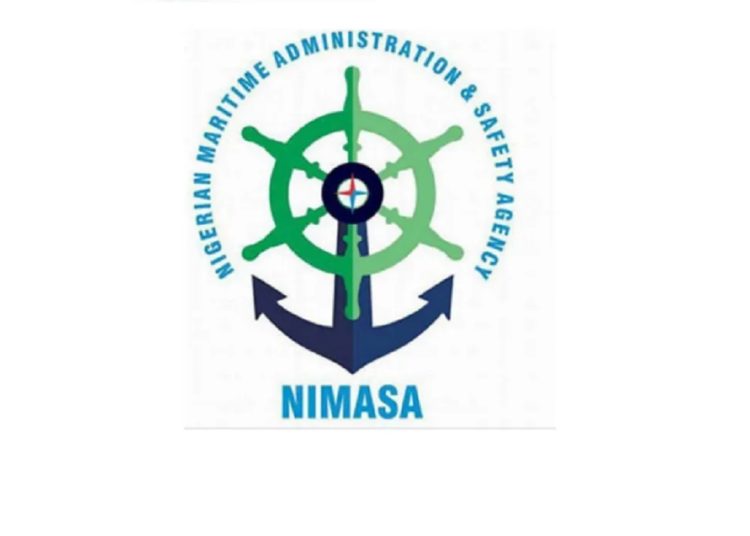The director general of the Nigerian Marítime Administration and Safety Agency (NIMASA), Dr Bashir Jamoh, has urged indigenous shipowners to take advantage of the incentives created by the federal government to increase their fleet, and end foreign dominance of the nation’s coastal trade.
Jamoh, who gave this charge over the weekend, at the Shipowners’ Association of Nigeria (SOAN), end-of-year dinner and gala night in Lagos, said the incentives were
zero duty for imported new ships, with older ones attracting higher duty, while the second was a Central Bank of Nigeria (CBN) monetary incentive that guarantees forex at official rate for ship acquisition, rather than at the exorbitant black market rate and the recent approval for the disbursement of the Cabotage Vessel Financing Fund (CVFF).
Jamoh, however, bemoaned that the incentives provided have not been able to provide any vessels into the country, saying, Nigeria will lose the major gains of the huge investments in the Lekki Deep Seaport, if the indigenous stakeholders do not take advantage of the federal government’s incentives to acquire vessels.
The NIMASA boss also assured shipowners that the agency under his leadership would sustain all efforts to ensure a conducive operating environment for the Nigerian shipowners, saying no shipping country will thrive without being supported by the government.
“So, I try as much as possible to weigh the kind of assistance the Nigerian Government can offer the ship owners in the environment they operate,” he said.
Speaking on the recent approval for the disbursement of the Cabotage Vessel Financing Fund (CVFF), Jamoh asked interested stakeholders to liaise with Mr. Aminu Umar of the Nigerian Shippers Association (NISA) and help build fleets for the nation rather than quarrel over the actual amount in the fund.
Worried at the different opposing views that have marred unity of purpose on the CVFF issue over the years, he asked, “what do the ship owners really want?”
According to Jamoh, foreigners are milking the country because they have the capital to come into the country with their ships, make and take the money away. However, he said: “it is high time we came together and ensure we benefit from what God has given us, and stop foreigners from taking over the coastal trade.”
He assured of transparency and merit in the CVFF disbursement, insisting that, neither NIMASA nor the ministry would bear any liability in the whole arrangement. Therefore, he noted that, “anyone getting this fund will get it on merit, mutual understanding, and based on the agreement with the bank and NIMASA.”
Jamoh further dismissed the fears that the CVFF was being diverted to other ends, or not being fully declared, stating that “in terms of the amount in the CVFF, public funds are statutorily subjected to audit every year, and the CVFF is not exempt.
“It is subject to auditor-general’s audit, FMoT audit and external auditors’ audit, so it is open. Instead of fighting to see the balance, concentrate on seeing how we can disburse what is available, increase our fleet and benefit from this trade that is very precious.
“All the investments at Lekki deep seaport will be useless if ships do not go there. So, why don’t we put heads together, get the funds, acquire the ships and make our own ports lively instead of struggling to quarrel and fight?
“If you say your money is 10,000 and somebody says no, it is 5,000, collect the 5,000 and follow him to collect the balance of 5,000.”
Earlier in his welcome address, SOAN president, Dr. McGeorge Onyung, commended NIMASA and Navy, saying, without peace, safety, security, calm, nothing can work.
He further thanked NIMASA for getting the NNPC to allow indigenous vessels work in the industry, thereby changing the narrative of past decades “when only foreign companies were working for Nigeria.
“Now our members are in that contract and trying to settle down, in spite of the hiccups, and in the end we will be able to benefit from the ocean.”
Onyung urged members to cooperate and draw down the CVFF to enhance the nation’s economic prosperity through non-oil export, explaining that, if NNPC produces crude oil for export, shipping produces non-oil export through freight, because when crude oil is exported, the shipping aspect is non-oil export.
We’ve got the edge. Get real-time reports, breaking scoops, and exclusive angles delivered straight to your phone. Don’t settle for stale news. Join LEADERSHIP NEWS on WhatsApp for 24/7 updates →
Join Our WhatsApp Channel










